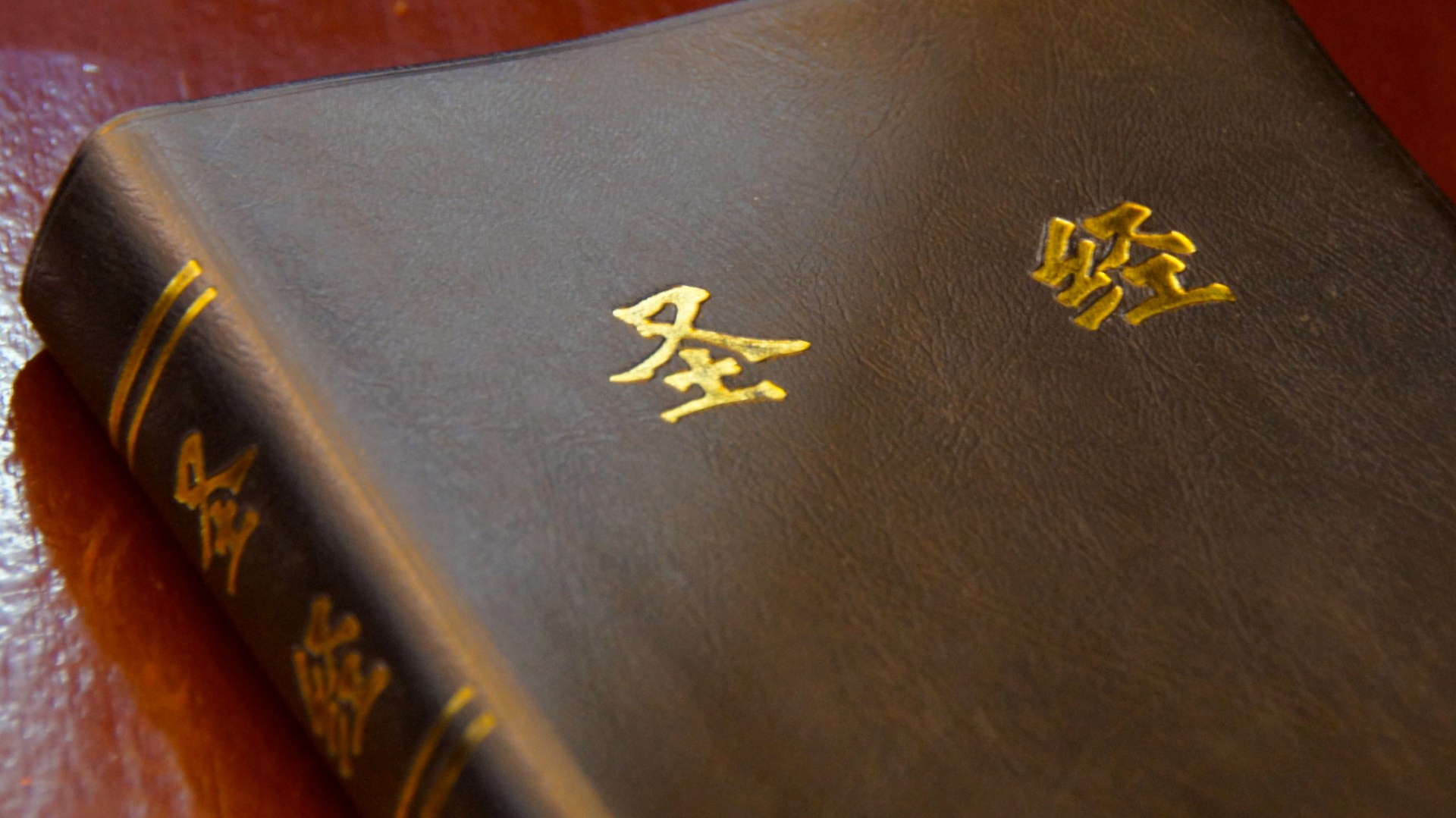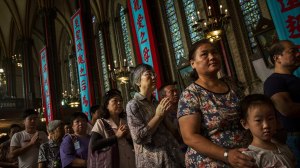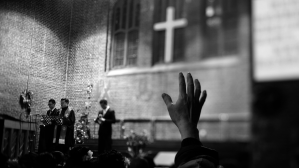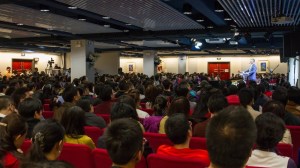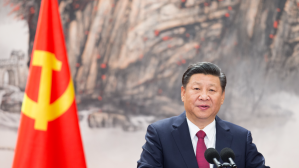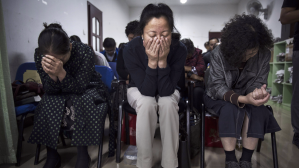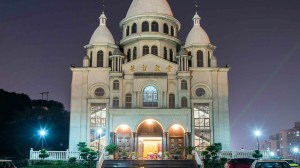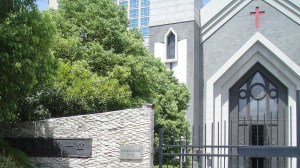In this series
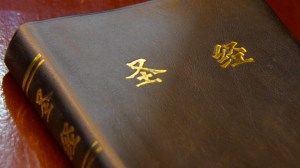
Under Mao Zedong’s dictatorship, Christianity, Buddhism, and Taoism suffered persecution and near-extinction. In recent decades, however, they have each made an astounding comeback. In The Souls of China: The Return of Religion After Mao, Ian Johnson, a Pulitzer Prize–winning author who has covered China for The Wall Street Journal, The New Yorker, and other publications, offers an intimate look at this remarkable recovery. CT editor at large Rob Moll spoke with Johnson about the reasons for spiritual ferment among the Chinese people.
What spurred your interest in China’s religious resurgence?
When I first went to China in the 1980s, I thought there was probably no religious belief at all. The Cultural Revolution had ended just eight years before, and there were almost no churches, temples, or mosques open. It seemed like religion had just been wiped out. In retrospect, this was completely wrong. The public practice of religion had been wiped out, but for many religions, the first 30 years of Communist rule were almost like a crucible. And this was especially true for Protestantism. Religious life was forced underground, and then it grew. And when the Cultural Revolution ended, it just took off. That became clearer when I came back to China in the 1990s.
If you want to understand China, it’s not enough just to understand the political and economic system or the foreign policy. All of these are important, but you also need to look at the inner life of the country. And the more time I spent there, the more I could see the vital importance of religion for the Chinese people. Many people sensed a spiritual vacuum and a confusion about what their society stands for morally—and they turned to religion for answers.
What happened after Mao’s reign to bring about this renewed interest in religion?
There were so many crises during Mao’s reign that after his death, communism was discredited. So the party basically said, “You can do what you want as long as you focus on economic life and leave the politics to us. You just go ahead and get rich.” They promoted this crass materialism.
For the first decade or two, you could say that this worked. But there was always an undercurrent of dissatisfaction. I think that’s taken off in the past decade, because so many Chinese are pretty well off. There is still poverty, but much less than in the past. For most people in China, the basic problems of food, clothing, and shelter have been solved. But then they look at their society and realize they want something more. There is a human desire for meaning in life and for arranging society on some kind of moral order. This has spurred the revival of religion—the traditional Chinese religions, to be sure, but also Protestant Christianity.
What are the major religious movements you explored?
First, I look at groups in Beijing that practice Buddhism and other Chinese folk religions, which have been suppressed in the past but are making a big comeback with a bit of government support. These are primarily working-class people, the kind you don’t meet very often or read about too much.
Then I spent time with a group of folk Taoist priests living in Tseng Chi province, in the countryside. Even though China has urbanized, about half the population lives in rural areas. Taoism is China’s indigenous religion. I got a feel for religion in the countryside, and a sense of the adaptations people make when they move to the cities. I visited a family where the father stayed in the village and the son moved to the town, which caused some tensions.
The other major group is the Chengdu Protestants, named after the province where they are concentrated. Protestantism is China’s fastest growing religion. I wanted to look at an unregistered church, because they are growing the fastest, and because they’re so dynamic and interesting. In some ways, they’re the future of one big segment of religious life in China. I also wanted to avoid spending too much time in Beijing. If you spend all your time there, you would think the Communist Party is all powerful. But in Chengdu you see this unregistered church that’s running its own seminary and kindergarten. It bought a floor in an office building. And all of this is happening even though it’s technically illegal. You get a feel for the diversity of China and how things outside of Beijing can be a bit more freewheeling.
How would you categorize the folk Buddhist “tea associations” around Beijing?
I do think this is religious practice, even if the government is more comfortable calling it “culture.” They don’t really know what to make of it. This is not really any one religion. It’s more the way most Chinese religion was practiced in the past, a hodgepodge of Taoism, Buddhism, and various other things. For most people, there wasn’t a sharp theological boundary between Taoism and Buddhism.
These things used to be viewed as mere superstition—praying to gods for children, good health, or things like that. And the government, in the hard Communist era under Mao, made it illegal. But increasingly, the government doesn’t see it as harmful because it can provide a kind of stability. It gives people something to believe in and it’s not overtly political, so the government is willing to encourage it.
It’s all self-organized, and people are really quite pious. The government might call it culture, but they’re worshiping at these temples. Almost all of them have little shrines in their homes, like a statue of a god or Guan Yin, the Buddhist goddess of mercy. They light incense and say prayers. You wouldn’t know it just from walking around Beijing, because it’s not so visible. But there are about 80 or 90 of these groups in Beijing, with more forming all the time.
Why do Protestantism and Chinese folk religions seem to appeal to different classes of people?
Protestantism is more likely to appeal to Chinese with higher levels of education. That’s not to say that people who believe in Buddhism and Taoism all have less education. But Protestantism is a more modern religion in the sense that you have a more unmediated relationship with God. You can pray directly to God, the pastor addresses you directly in his or her sermons, and there’s more participation by the congregation.
In a traditional Chinese ceremony, you tend to have a religious experience through an intermediary. The priest figure does ceremonies and says prayers on your behalf, and you’re more passively watching this happen. Many urban, educated people want a more active religious experience. Wang Yi, the pastor of Early Rain Reformed Church in Chengdu, is a very good speaker. His sermons address real-life issues that people face. Traditionally in Buddhism or Taoism you don’t have that kind of interaction with the priest. They are doing something for you, but they’re not really talking to you.
Why are Chinese political dissidents so attracted to Christianity?
Maybe, for some, Christianity can be seen as a purely pietistic religion. But traditionally, for most people, it has had a social component. And so it’s no coincidence that, by a conservative estimate, around one-third of these legal activists and human rights lawyers are Christians. Considering the percentage of Christians in the overall population, that’s disproportionately high. There are Christians in China who say, “We have no political claim here. We just want to pray.” But others see Jesus standing up for the poor, the sick, and the weak, and that can be inspiring.

